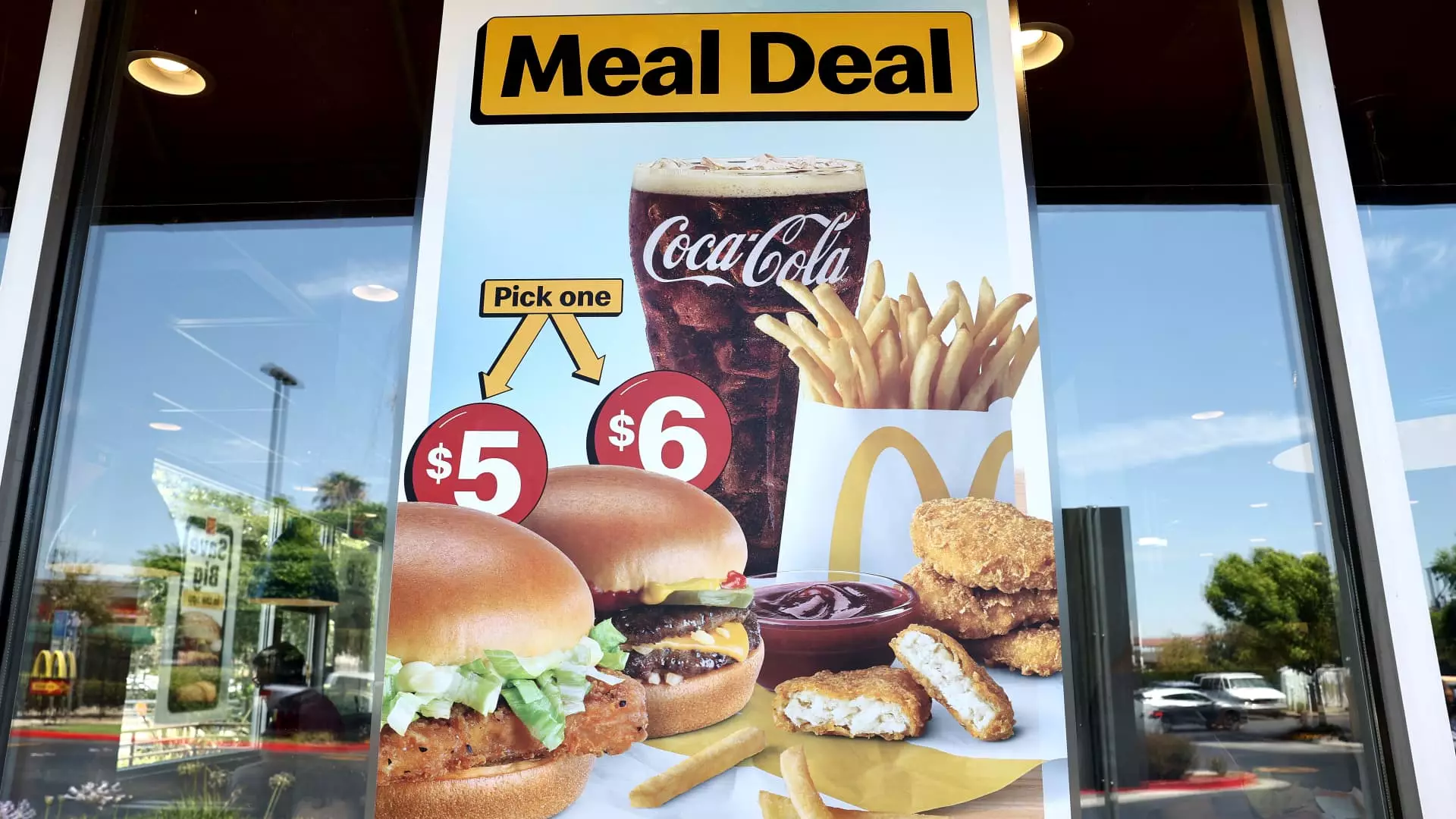Fast food chains have seen a resurgence in the $5 price point, aiming to attract customers who have cut back on their spending. With many restaurant companies bracing for second-quarter results, investors are bracing for the impact of reduced foot traffic and sluggish sales. Although a few exceptions like Chipotle are thriving, other chains like McDonald’s, Taco Bell, Burger King, and Wendy’s are turning to $5 meal deals to boost their performance.
Fast food has historically fared well during economic downturns, but recent price hikes have alienated some customers who no longer view fast food as a good deal. According to a recent LendingTree survey, over 60% of respondents have reduced their fast-food spending because they find it too expensive. This trend has particularly affected low-income customers, who form a significant portion of the fast-food customer base.
Casual dining chains are capitalizing on this shift in consumer behavior, with players like Brinker International’s Chili’s highlighting their value proposition compared to traditional fast-food meals. Darden Restaurants CEO Rick Cardenas noted that casual dining chains are gaining market share from fast-food establishments, indicating a broader trend in the industry.
The stock prices of major fast-food chains like McDonald’s, Burger King’s parent company Restaurant Brands International, and Wendy’s have all experienced significant declines this year due to concerns about sales performance. Taco Bell owner Yum Brands has also felt the impact of changing consumer preferences. Investors are wary of the second quarter’s potential underperformance, with many large chains projected to miss consensus estimates.
As operators struggle to maintain profitability amidst rising costs and consumer price sensitivity, fast-food chains are running out of leeway to increase menu prices. The introduction of value meals at the $5 price point serves a dual purpose of driving foot traffic and encouraging customers to add higher-margin items to their orders. However, failure to upsell customers could erode profits and render the discounts unsustainable in the long run.
Franchisees have become more vocal in resisting corporate discount strategies that could impact their bottom line. With the formation of groups like McDonald’s National Owners Association, franchisees are pushing back against unpopular deals and renovation plans. The tension between franchisees and parent companies underscores the challenges of balancing company-wide promotions with individual operators’ concerns.
As fast-food chains navigate a highly competitive landscape and evolving consumer preferences, the future of value menus remains uncertain. While discounts can drive short-term traffic boosts, sustainability and profitability are key concerns for investors and franchisees alike. Finding a balance between enticing promotions and long-term profitability will be crucial for fast-food chains looking to weather the storm of changing consumer behavior.


Leave a Reply